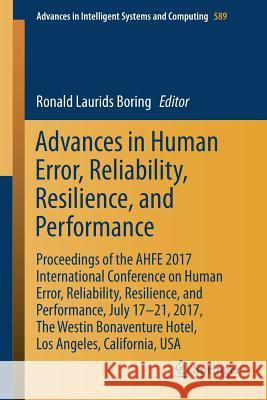Advances in Human Error, Reliability, Resilience, and Performance: Proceedings of the Ahfe 2017 International Conference on Human Error, Reliability, » książka
topmenu
Advances in Human Error, Reliability, Resilience, and Performance: Proceedings of the Ahfe 2017 International Conference on Human Error, Reliability,
ISBN-13: 9783319606446 / Angielski / Miękka / 2017 / 366 str.
Advances in Human Error, Reliability, Resilience, and Performance: Proceedings of the Ahfe 2017 International Conference on Human Error, Reliability,
ISBN-13: 9783319606446 / Angielski / Miękka / 2017 / 366 str.
cena 603,81
(netto: 575,06 VAT: 5%)
Najniższa cena z 30 dni: 578,30
(netto: 575,06 VAT: 5%)
Najniższa cena z 30 dni: 578,30
Termin realizacji zamówienia:
ok. 16-18 dni roboczych.
ok. 16-18 dni roboczych.
Darmowa dostawa!
This book brings together studies broadly dealing with human error from different disciplines and perspectives.











